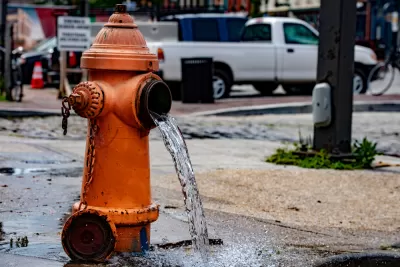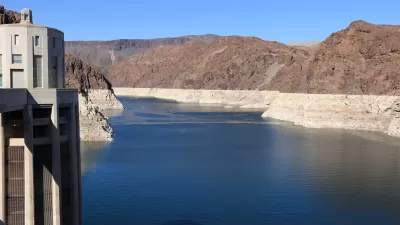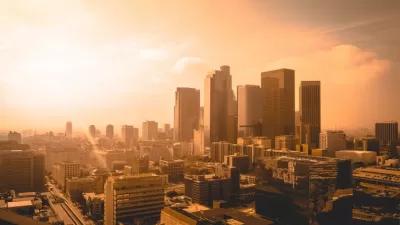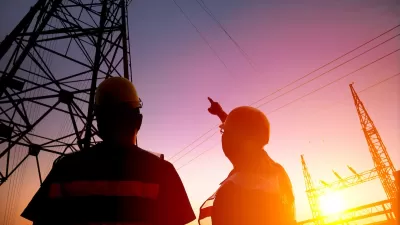A recently published report finds more evidence to elevate heat as a matter of environmental justice.

Meg Anderson and Sean McMinn report on the connection between urban heat islands and neighborhoods with high proportions of low-income people of color.
The article starts with the example of Baltimore, where the franklin Square neighborhood is "hotter than about two-thirds of the other neighborhoods in Baltimore — about 6 degrees hotter than the city's coolest neighborhood."
"It's also in one of the city's poorest communities, with more than one-third of residents living in poverty," according to Anderson and McMinn.
The article is sharing news of a recent investigation by NPR and the University of Maryland's Howard Center for Investigative Journalism.
"In dozens of major U.S. cities, low-income neighborhoods are more likely to be hotter than their wealthier counterparts," according to the article. "Those exposed to that extra heat are often a city's most vulnerable: the poorest and, our data show, disproportionately people of color."
The investigation echoes a report from earlier this year that connects shade with environmental justice, exemplified in that case by the city of Los Angeles. In the case of Baltimore, Anderson and McMinn make it clear that the city is not a special case: "NPR analyzed 97 of the most populous U.S. cities using the median household income from U.S. Census Bureau data and thermal satellite images from NASA and the U.S. Geological Survey. In more than three-quarters of those cities, we found that where it's hotter, it also tends to be poorer. And at least 69 had an even stronger relationship than Baltimore, the first city we mapped."
FULL STORY: As Rising Heat Bakes U.S. Cities, The Poor Often Feel It Most

Alabama: Trump Terminates Settlements for Black Communities Harmed By Raw Sewage
Trump deemed the landmark civil rights agreement “illegal DEI and environmental justice policy.”

Study: Maui’s Plan to Convert Vacation Rentals to Long-Term Housing Could Cause Nearly $1 Billion Economic Loss
The plan would reduce visitor accommodation by 25% resulting in 1,900 jobs lost.

Planetizen Federal Action Tracker
A weekly monitor of how Trump’s orders and actions are impacting planners and planning in America.

Wind Energy on the Rise Despite Federal Policy Reversal
The Trump administration is revoking federal support for renewable energy, but demand for new projects continues unabated.

Passengers Flock to Caltrain After Electrification
The new electric trains are running faster and more reliably, leading to strong ridership growth on the Bay Area rail system.

Texas Churches Rally Behind ‘Yes in God’s Back Yard’ Legislation
Religious leaders want the state to reduce zoning regulations to streamline leasing church-owned land to housing developers.
Urban Design for Planners 1: Software Tools
This six-course series explores essential urban design concepts using open source software and equips planners with the tools they need to participate fully in the urban design process.
Planning for Universal Design
Learn the tools for implementing Universal Design in planning regulations.
Caltrans
Smith Gee Studio
Institute for Housing and Urban Development Studies (IHS)
City of Grandview
Harvard GSD Executive Education
Toledo-Lucas County Plan Commissions
Salt Lake City
NYU Wagner Graduate School of Public Service





























